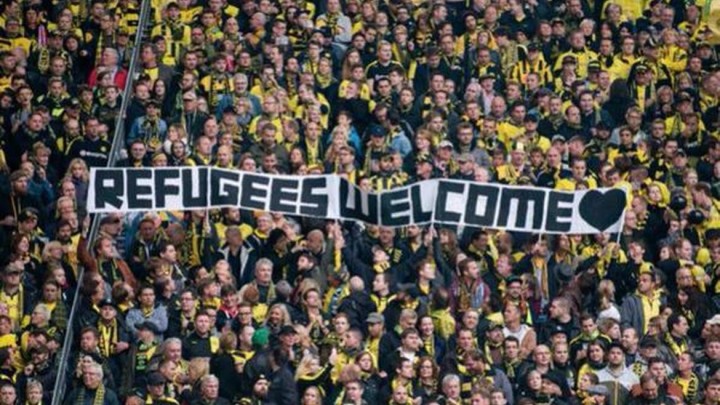The deal between the European Union and Turkey agreed on the 18th of March is based on a cloudy European and international legal framework. The text uses a fairly vague way of describing people who come into European territory, playing with concepts and terms like ‘irregular migrant’, ‘asylum seeker’ and ‘Syrian’ while accepting Turkey as a regulator country for asylum issues. Furthermore, the so-called Balkan route is being permanently closed. The deal introduces returns in order to offset the relocation procedure binding the countries of the Union essentially to only 18,000 permissions while leaving it unclear what will happen to the remaining up to 54,000 that were discussed in the summer of 2015. From this perspective, Greece is the only country being requested acknowledge Turkey as a safe country to where refugees can be sent back from the Union. New legislation is expected to be brought to the Greek Parliament this week.
The Greek authorities immediately accelerated the transfer to the mainland of about 8,000 refugees and migrants who arrived on the islands before the 20th of March. This was due to the enforcement of the agreement for those arriving on the Greek islands after the 20th of March and who will inevitably be subject to the new return policy.
These movements caused the UNHCR’s announcement in which “… [the Agency] supported the authorities in the so-called “hotspots” in the Greek islands, where the reception, assistance and registration of refugees and immigrants were facilitated. Under the new provisions, these areas are now turned into detention centers. Accordingly, and in line with our policy concerning mandatory detention, we suspend some of our actions at all closed centers in the islands, including transportation services to and from these places. However, the UNHCR will maintain its presence with a supervisory role in protection issues to ensure that human rights standards and the rights of refugees are respected, as well as by providing information about rights and procedures for access to asylum”.
The UNHCR’s communication was followed by a number of organizations (including MSF, Save the Children, the Samaritans, etc.) that temporarily declined all or part of their actions in the hotspots.
At an international level
As part of the peace process agreed by the conflicting parties in Syria which came into effect on the 27th of February, Vladimir Putin, the Russian President announced the withdrawal of ground forces from the country by saying that the objectives set by the Russian army of halting ISIS have been largely achieved.
John Kerry (the US Foreign Minister) said that ISIS should be investigated for genocide attempts in Syria and Iraq.
Nils Muiznieks (the EU Commissioner for Human Rights) in an editorial in the New York Times alerted EU leaders to the risks of violations of international and European treaties in the case of an agreement with Turkey.
As the flow of refugees continues in the Aegean islands creating cracks in the European architecture, the deadly terrorist attacks of the 22nd of March in Brussels airport and metro has increased European citizens’ concerns regarding whether the decades-old EU – and the West in general – foreign policy in the Middle East is appropriate, as well as their fear against fanatical Islam.
Situation in Idomeni
Meanwhile, according to the UNHCR there are estimated to be between 10,000 and 12,000 people in Idomeni (including about 4,000 children) living in tents in bad conditions in an informal settlement near the border, very close to railway lines. The conditions there are causing negative impacts on human health; people are forced to burn plastic and garbage to get warm.
Over the past few days a large group of refugees tried unsuccessfully to break the blockade and escape across a river to the Republic of Macedonia with babies in arms, disabled persons in trolleys and elderly people on the backs of youngsters.
Solidarity continues to find ways of expression
In Greece, more than 3,000 people have signed a call by intellectuals in favour of the reception of refugees in Europe, highlighting the hospitality and asylum privilege instead of barbarism.
The provision of health services, food, clothing and support by every possible means is continuous where organized or unorganized camps for refugees and immigrants exist.
In Spain, thousands of people demonstrated against the terms of the EU-Turkey agreement. While on the 19th of March anti-racist demonstrations were held in London, Glasgow and Cardiff in the United Kingdom in solidarity with refugees, migrants and Muslims who have been recently targeted by the media and politicians inciting hatred against them. Actress Vanessa Redgrave, well-known journalists, MPs and representatives of various organizations were among the speakers.
Speaking of numbers for the relocation procedure…
In September 2015 it was decided that an additional 120,000 refugees would move from Greece, Hungary and Italy (bringing the total number to 160,000) to several EU countries over the next two years. Based on the European Commission’s official data (February 4, 2016), only 279 people have been transferred from Italy and 202 from Greece, France and Finland ranking as the biggest recipients. And as Bruegel’s researchers stated, “if relocation continues at this rate, it will take 47 years to bring 39,600 people from Italy and more than 100 years to conclude the planned relocation.”










